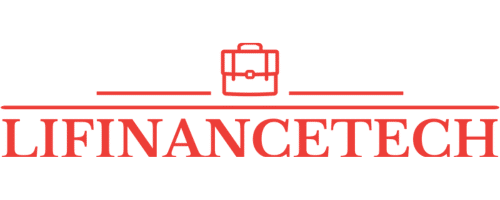
In today’s ever-changing financial landscape, it is crucial to stay ahead of the curve and adopt innovative strategies to secure a prosperous future.
This article explores six essential types of financial planning that individuals should prioritize to achieve their goals.
– Cash flow management: Effective management of income and expenses is the foundation of financial stability.
– Insurance planning: Protecting oneself and loved ones from unexpected events is crucial
– Retirement planning: Planning for retirement is essential to ensure a comfortable and financially secure future.
– Tax planning: Minimizing tax liabilities is a critical aspect of financial planning.
– Investment planning: Investing is a powerful tool for wealth accumulation and growth
– Estate planning: Estate planning is about protecting and distributing assets according to an individual’s wishes.
Each type of financial planning plays a vital role in optimizing finances and minimizing risks. By embracing these forward-thinking approaches, individuals can navigate the complexities of the financial world and pave the way for long-term success.
What is financial planning, its importance and benefits- Read Here
Key Takeaways
- Financial planning involves setting, planning, and managing finances to help clients achieve their long-term and short-term financial goals.
- There are six main types of financial planning: cash flow planning, insurance planning, retirement planning, tax planning, investment planning, and estate planning.
- Cash flow planning helps clients create a detailed budget, understand their overall financial picture, and navigate unexpected situations.
- Insurance planning involves assessing clients’ risks, evaluating coverage options, and regularly reviewing and updating insurance policies.
Cash Flow Planning
Cash flow planning involves creating a detailed budget and financial forecast to help clients understand their overall financial picture and make better financial decisions. By analyzing income, expenses, and savings, cash flow planning provides clients with a clear understanding of their financial health and helps them identify areas for improvement.
One of the key benefits of cash flow planning is that it allows clients to gain control over their finances. By tracking income and expenses, clients can identify unnecessary spending and make adjustments to better align their financial habits with their long-term goals. Additionally, cash flow planning helps clients anticipate and prepare for future expenses, such as emergencies or major purchases, ensuring they have the necessary funds available.
To effectively manage cash flow, clients can implement several strategies. These include creating a realistic budget, regularly reviewing and adjusting spending habits, automating bill payments and savings contributions, and prioritizing debt repayment. By implementing these strategies, clients can optimize their cash flow and achieve greater financial stability.
Insurance Planning
Continuing the discussion from the previous subtopic on cash flow planning, insurance planning plays a crucial role in protecting clients’ financial well-being. It involves assessing clients’ risks and determining the appropriate insurance coverage. Evaluating insurance options is essential to ensure adequate coverage and understand the associated costs and risks.
| Insurance Type | Benefits |
| Life Insurance | Provides financial protection for loved ones in the event of the policyholder’s death. Offers peace of mind and can be used to cover funeral expenses, outstanding debts, and income replacement. |
| Health Insurance | Covers medical expenses, including doctor visits, hospital stays, and prescription drugs. Protects against high medical costs and ensures access to quality healthcare. |
| Property Insurance | Protects against damage or loss of property due to fire, theft, or natural disasters. Provides financial security and helps rebuild or repair damaged property. |
Retirement Planning
Retirement planning is a crucial aspect of comprehensive financial planning, ensuring individuals can achieve their desired retirement age and income. For those who desire innovation, here are some tips for building a retirement nest egg and steps to create a retirement income plan.
Firstly, it is important to start saving for retirement as early as possible. The power of compound interest can significantly grow your savings over time. Consider maximizing contributions to retirement accounts such as a 401(k) or IRA.
Next, diversify your investments to manage risk and potentially increase returns. Explore different asset classes and investment options that align with your retirement goals and risk tolerance.
Additionally, regularly review and adjust your retirement plan to ensure progress towards financial independence. As your circumstances change, reassess your savings and investment strategies to stay on track.

Tax Planning
Tax planning is an essential component of comprehensive financial planning. It involves analyzing clients’ tax situation and identifying strategies to minimize taxes. By anticipating and managing taxes throughout the year, individuals and businesses can take advantage of tax saving strategies, maximize deductions and exemptions, and reduce the amount of taxes paid. Staying up-to-date with tax laws and regulations is crucial to ensure compliance and optimize tax planning.
Additionally, finding tax-advantaged investments and taking advantage of tax credits can further reduce tax liability. By incorporating tax planning into their overall financial plan, individuals and businesses can effectively manage their tax burden and allocate more resources towards achieving their financial goals.
Is MAUS Software worth considering for your Business/Financial planning ?- Read Here
Investment Planning
When it comes to managing your finances, one important aspect to consider is investment planning. Investment planning involves assessing your risk tolerance, investment goals, and return expectations. It also entails diversifying your investment portfolio across different asset classes and sectors to minimize risk.
As a fiduciary, an investment planner acts in your best interests and provides advice on suitable financial products. They also help with portfolio management to further minimize risk.
In the world of innovation, investment strategies and risk assessment play a crucial role. By incorporating innovative approaches to investment planning, such as utilizing data analytics and artificial intelligence, investors can make better-informed decisions. This can lead to more effective investment strategies and ultimately, better financial outcomes.
Estate Planning
Furthermore, in the realm of financial planning, another crucial area to consider is estate planning.
Estate planning involves organizing and managing clients’ assets for distribution after their passing. It is especially important for small business owners, as it allows them to determine the future of their business and ensure a smooth transition for their loved ones.
Additionally, estate planning can help minimize estate taxes, which can be a significant burden for beneficiaries. Strategies for minimizing estate taxes include utilizing gifting strategies, establishing trusts, and taking advantage of tax exemptions and deductions.
Final words
In conclusion, financial planning is crucial for achieving financial stability and success. By considering the different types of financial planning, individuals can create comprehensive plans that address their specific needs and objectives.
Cash flow planning, insurance planning, retirement planning, tax planning, investment planning, and estate planning all contribute to a secure and prosperous financial future. By following these types of financial planning, individuals can minimize risks, maximize returns, and work towards their financial aspirations.
Frequently Asked Questions (FAQ)
How Can Cash Flow Planning Help Me Navigate Unexpected Financial Situations?
Cash flow planning helps navigate unexpected financial situations by creating a detailed budget, identifying potential issues, and including emergency funds. It provides a comprehensive view of your finances and helps you make better financial decisions.
What Factors Should I Consider When Evaluating Insurance Coverage Options?
When evaluating insurance coverage options, factors to consider include the cost effectiveness and coverage limits. It is important to review deductible options and policy exclusions to ensure the policy meets your specific needs.
How Can Retirement Planning Strategies Help Increase My Retirement Income?
Retirement planning strategies can help enhance retirement income by assessing income sources, expenses, and risks. They develop strategies to increase income, factor in inflation and market volatility, and provide peace of mind.
What Are Some Common Tax Planning Strategies to Minimize Taxes?
Common tax planning strategies include maximizing deductions and exemptions, taking advantage of tax-advantaged investments, managing tax liabilities throughout the year, and staying updated on tax laws. These techniques help minimize taxes and optimize financial outcomes.
How Can Investment Planning Help Me Diversify My Investment Portfolio and Minimize Risk?
Investment planning can help diversify your portfolio by allocating assets across different sectors and asset classes. This strategy mitigates risk by reducing exposure to any single investment. Seek professional advice for optimal results.






